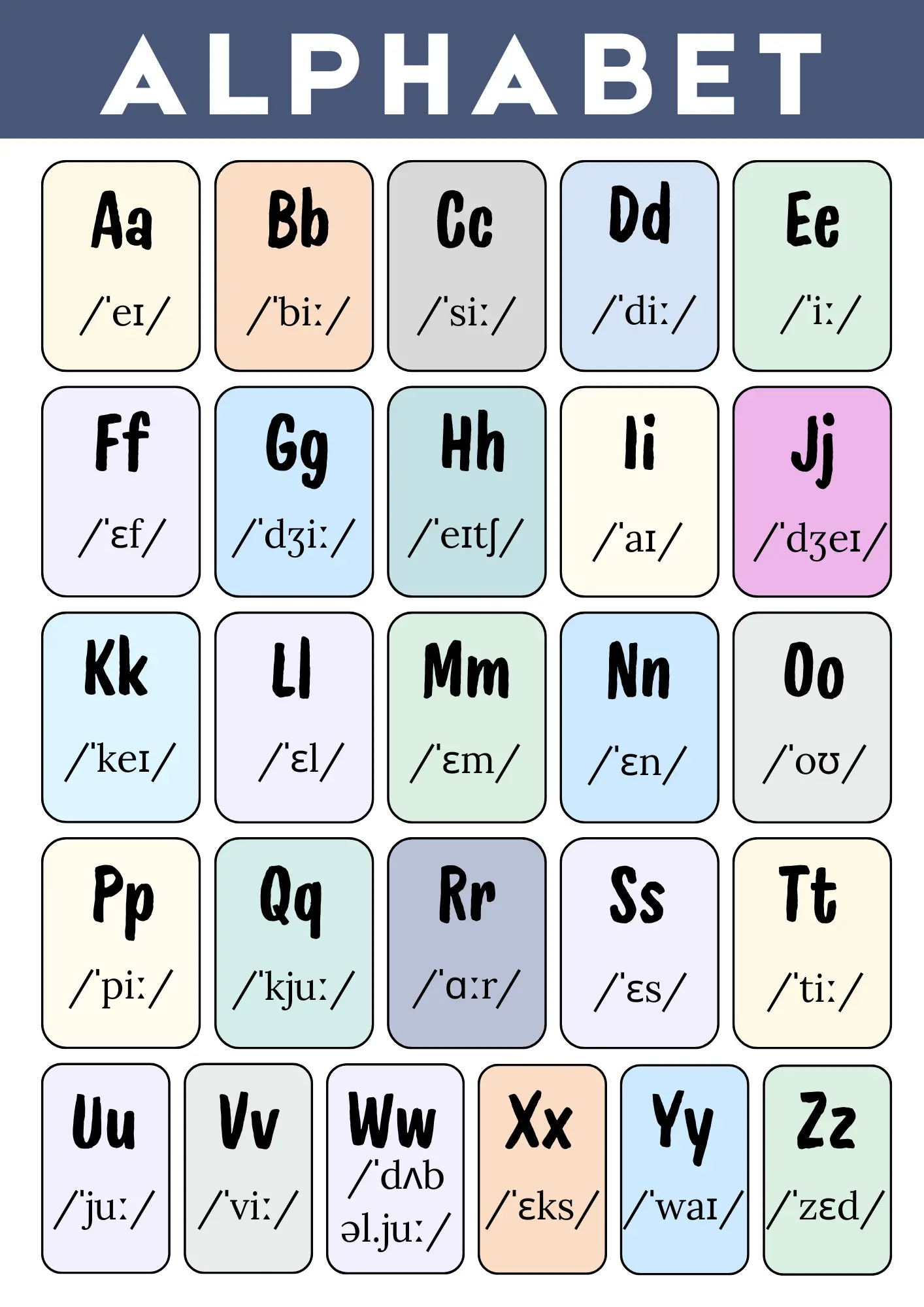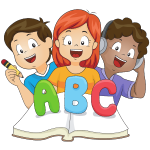1. Alphabet pronunciation
There are 26 letters in the English alphabet: A B C D E F G H I J K L M N O P Q R S T U V W X Y Z.
British English pronunciation
American English pronunciation

2. Phonetic alphabet
In English, we often use code words, commonly known as the phonetic alphabet, to help spell words. For example, to spell ANDY, one would say A for Alfa, N for November, D for Delta, and Y for Yankee. Type any English alphabet character in the box below and listen to the code words used.

3. Table of the English alphabet with phonetic references
The table below displays the English alphabet as capital letters and lowercase letters. Next to each letter, you’ll see how it’s pronounced and its corresponding word from the NATO phonetic alphabet. The main goal of the phonetic alphabet is to have a set of words (code words) that can be easily understood when spoken over the phone or radio, even in poor conditions or when the connection isn’t clear.
| Capital | Lowercase | Phonetic | Phonetic Alphabet |
|---|---|---|---|
| A | a | /eɪ/ | Alpha |
| B | b | /bi:/ | Bravo |
| C | c | /si:/ | Charlie |
| D | d | /di:/ | Delta |
| E | e | /i:/ | Echo |
| F | f | /ef/ | Foxtrot |
| G | g | /dʒi:/ | Golf |
| H | h | /eɪtʃ/ | Hotel |
| I | i | /aɪ/ | India |
| J | j | /dʒeɪ/ | Juliet |
| K | k | /keɪ/ | Kilo |
| L | l | /el/ | Lima |
| M | m | /em/ | Mike |
| N | n | /en/ | November |
| O | o | /oʊ/ | Oscar |
| P | p | /pi:/ | Papa |
| Q | q | /kju:/ | Quebec |
| R | r | /ɑ:r/ | Romeo |
| S | s | /es/ | Sierra |
| T | t | /ti:/ | Tango |
| U | u | /ju:/ | Uniform |
| V | v | /vi:/ | Victor |
| W | w | /ˈdʌblju:/ | Whiskey |
| X | x | /eks/ | X-ray |
| Y | y | /waɪ/ | Yankee |
| Z | z | /zed/ (or /ziː/ in AE) | Zulu |
4. Pronunciation challenges in English
English pronunciation can often be challenging, even for those who’ve been studying the language for a while. The reason for this is the inconsistency in how certain letters or combinations of letters are pronounced in different words. Consider the letter “i”. In the word “ship” [ʃɪp], the “i” sounds short, similar to the “i” in “lip” [lɪp]. However, in “sheep” [ʃiːp], the “i” elongates, resembling the “ee” in “sleep” [sliːp]. Similarly, the letter “a” varies greatly in pronunciation. In “cat” [kæt], it has a short, crisp sound. Yet, in “game” [geɪm], the “a” sounds long, like the “a” in “name” [neɪm].
To help you practice your English pronunciation, click the audio symbol next to each word in the table below and listen to how native speakers pronounce it.

